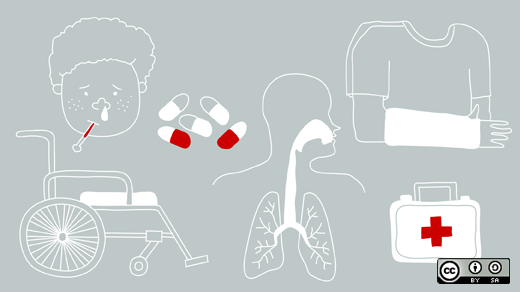Checklist for building civic tech solutions for the health sector: Insights from #AfricaOpenData

Health scares are something that keep millions of Africans awake at night, terrified that they might be unable to keep their loved ones safe. Possible solutions using digital tools were therefore a big focus at the continent’s first #AfricaOpenData conference in Dar es Salaam (Tanzania) this week.
The Code for Africa network has already done significant work in this area, building resources ranging from our ‘Dodgy Dr’ lookup service in Kenya, and mobile apps that help ordinary citizens find cheaper medicines in South Africa, to a powerful price comparison tool that helps health ministries in 14 southern African nations negotiate better deals with global pharmaceutical companies.
We joined a ‘Open Data at Work’ breakout session with other civic technology pioneers to share insights into some of the challenges that often derail laudable projects, and some of the possible strategies for avoiding the most common pitfalls.
Here are our takeaways from the session:
Access
Creating data accessibility is the first step in creating lasting solutions around health open data. Here are a couple of key considerations when creating access to health data:
- Timeliness of data: An almost realtime stream of the required data would enhance the data’s quality. In particular for health, possible epidemics could be stopped early on.
- Security: Matters of data and information security came up and more specifically PPI (Personally Identifiable Information). This information should be protected and data publishers should keep in mind as to how and what is published.
- Reliability: This cuts across all categories of open data and to create actionable insights, from source, the data needs to be reliable. Perhaps by cutting down on human error through keen verification methods.
- Interoperability: This is both of the data and systems. For data, it should be released in a common, non-proprietary format. For systems/platforms, inclusion of APIs (Application Programming Interfaces) as well as plugins to take advantage of APIs from other platforms/systems could allow integration of even more contextual data from other systems.
Insights
Having ‘insight’ is the capacity to gain accurate and deep understanding of something. To ensure that your health data is insightful, you need to consider the following:
- Language: Particularly for Africa where there are multiple spoken languages in any given country, considerations for language translation should be made when providing insights.
- Easy creation: To be able to create these insights easily with tech solutions would be helpful for quick turn-around of time-sensitive information and eventual action/decision.
- Publishing / Sharing / Presenting: Using different visualisations methods will help to better present health data for easy consumption.
- Research models: In combining or using data for insights, there should be partnerships with research experts to be able to accurately create models that will give the best understanding. Technologists can create the tools but the domain experts know the right questions and metrics to use to give insight.
- Restriction to domain experts: There is interest by only decision/policy makers and industry professionals closing out creatives + journalists + techies to come up with cool ideas + contributions around the data. Tangible steps should be take to attract such groups.
- Sharing Insights: How do we bridge the gap between those who create insights and the policy/decision makers. Particularly if communities/groups outside of these circles or institutions create insights.
Action
Making data accessible and insightful is great … but is no guarantee that people will use it. You have to make sure that your data is also ‘actionable’ so that people are inclined to immediately use it. Here are some simple strategies for making data actionable:
- Granularity: The data should be finite enough to be able to drill down to what one would be personally interested in while allowing for comparison and context.
- Offline action: If an action is taken away from an online platform, how would we be able to track actual impact or even confirm that the action was taken?
- Priorities: of individual / State. Resources priorities could have monies, time and services pumped into other things despite the insights provided. Culture/Tradition priorities could have a community or individual choose to forgo an action.
- Feedback loop: Closing the loop by having data created from an action, feed back into the process.
Conclusion
Partnerships (with govt’ + software providers + media + CSOs + communities), and creation/use of best practices and standards could provide solutions to making open data in health accessible for actionable insights.
This blog was originally published by David Lemayian on Medium for Code for Africa.
Illustration created by Islam Elsedoudi for opensource.com | Flickr
